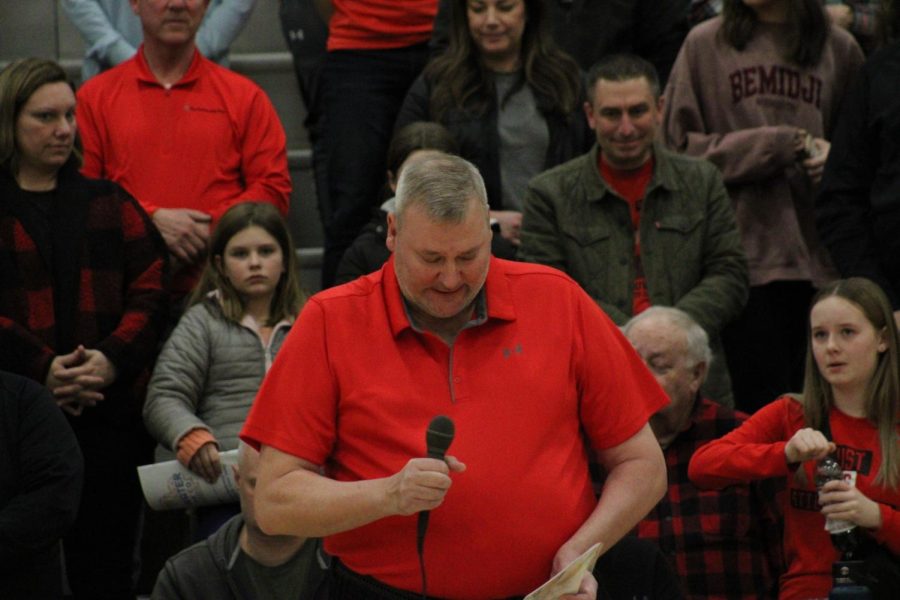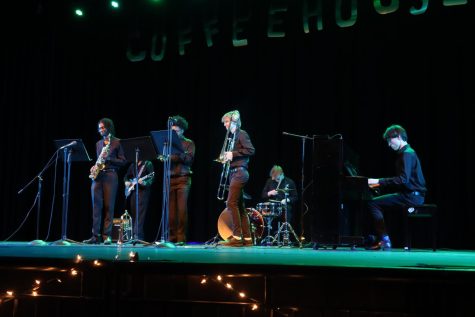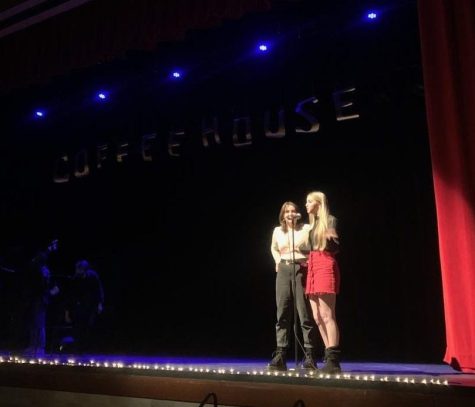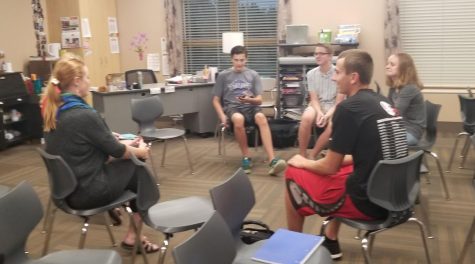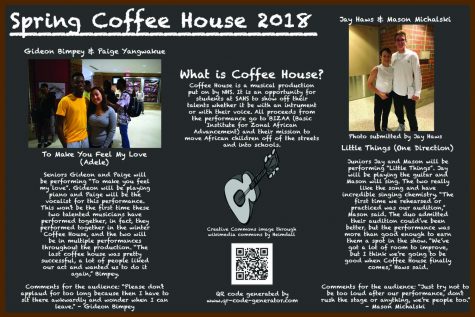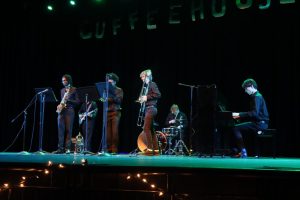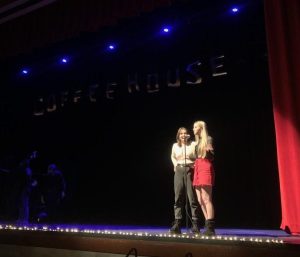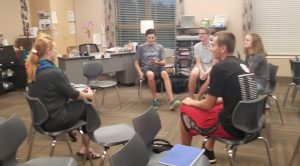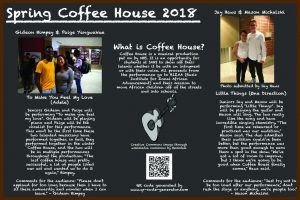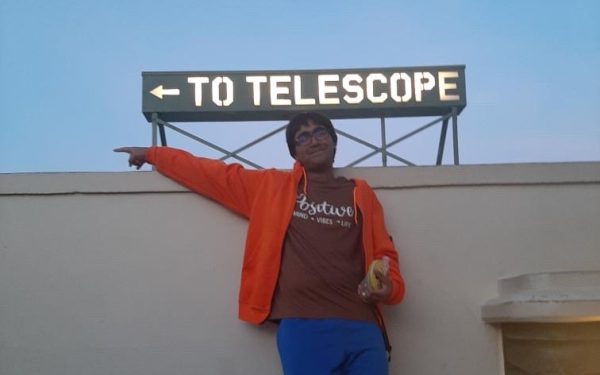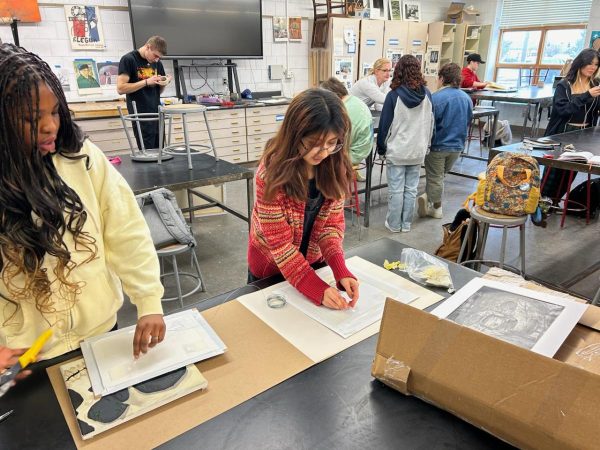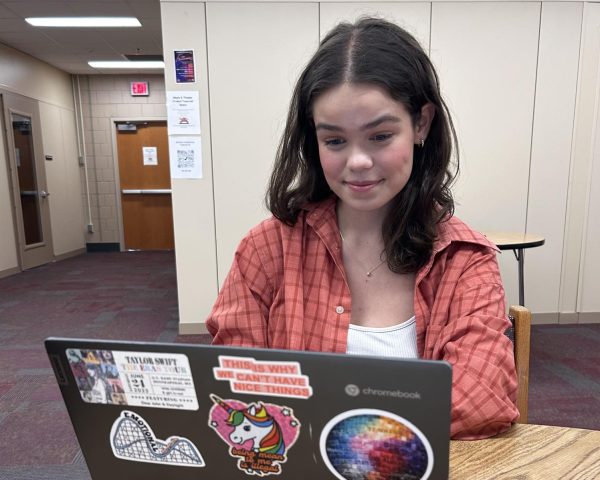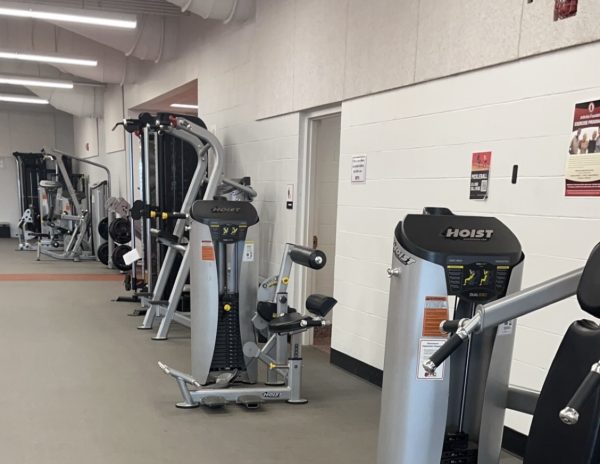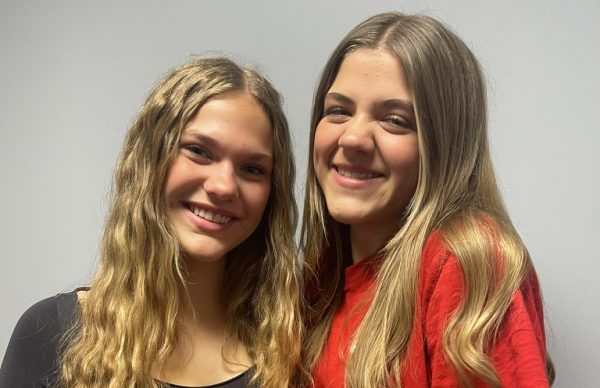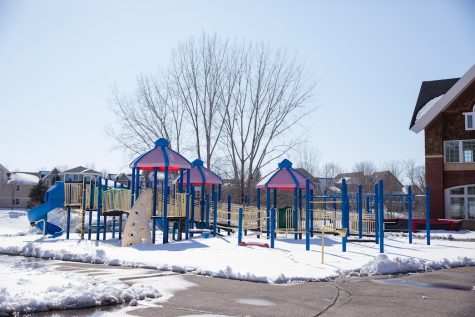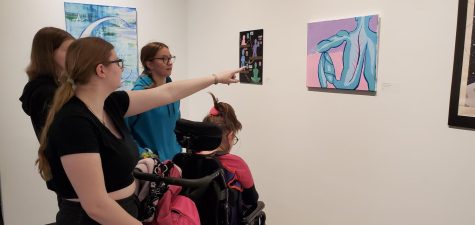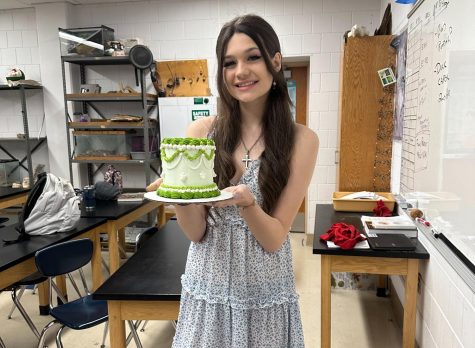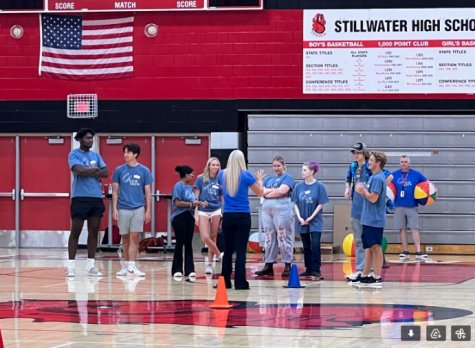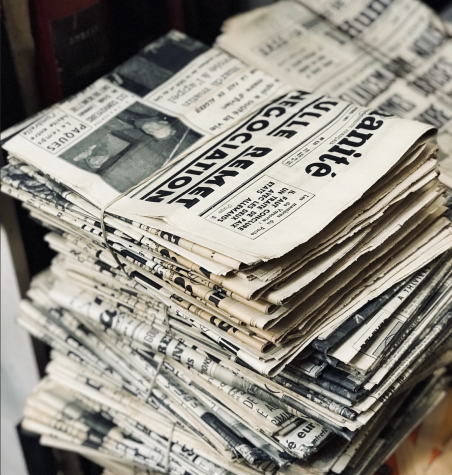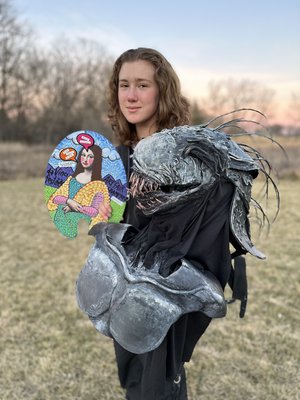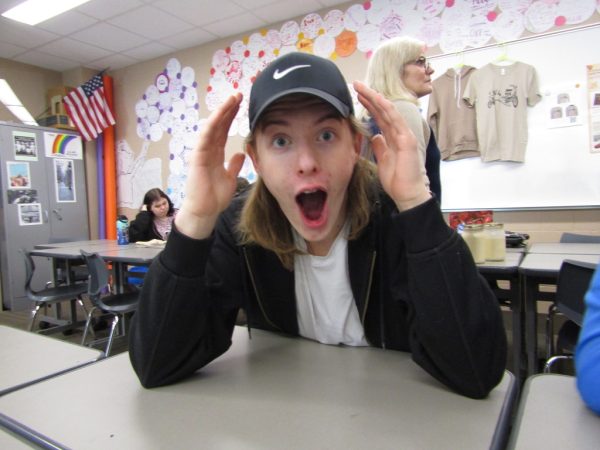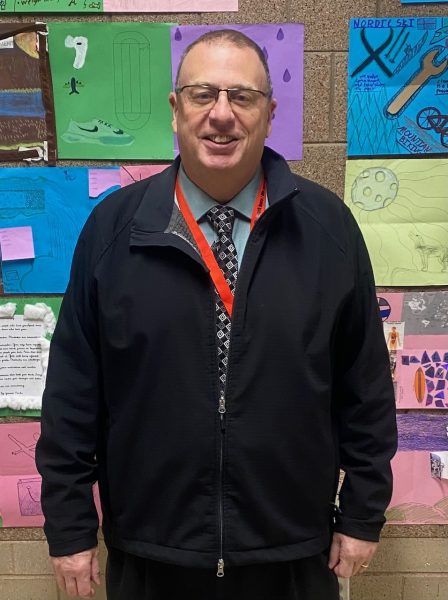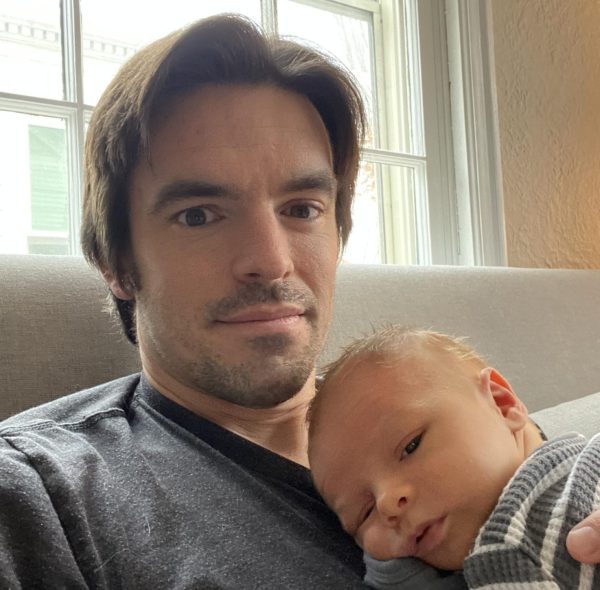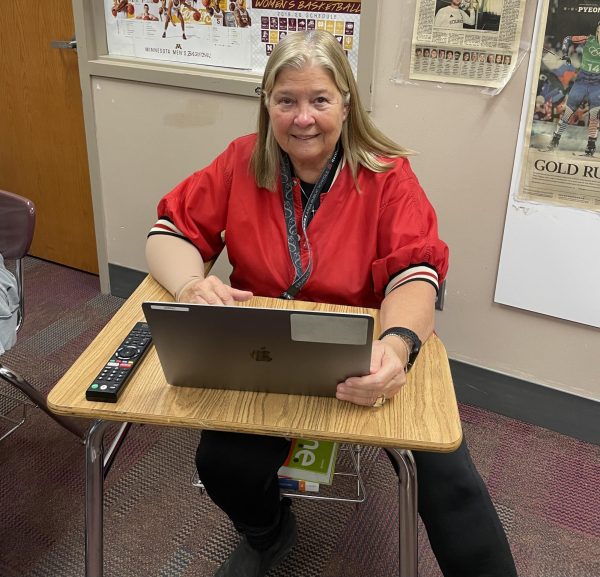Chris Engler fights to find cure for ALS
Chris Engler shares a few words of gratitude and encouragement at his jersey retirement ceremony. He played basketball in 1974 and then after graduating from Stillwater, he made it into the NBA. His coaches in high school are who he thanks for making him the athlete he was.
Bright white lights were lighting the walls of the doctor’s office. The sounds of distant mumbling and the beeping of machines filled the room. Chris Engler anxiously waited in a soft chair beside his wife, he was waiting for the news that would change his life forever. The wood door swung open without a sound and revealed a doctor with a pile of papers and a grim look on his face. He slowly sat down, breathed deeply and said the words that Chris had been fearing. It’s Amyotrophic Lateral Sclerosis. Chris had ALS.
Twenty-two months ago, Chris was diagnosed with ALS, a condition that causes his nerves to start degenerating and cease to function. Though the news is life-changing, he has changed for the better and started to raise money to find a cure for the deadly condition. Last December, he and the National Honors Society collaborated to help raise money for research that would hopefully find a cure for ALS.
“All they do is they go to work every day in the lab, trying to find cures or ways to heal ALS,” Chris explained.
ALS has turned people’s lives upside down with the catastrophic damage it can cause to those afflicted. Each patient’s diagnosis can be different and multiple types of ALS have been discovered. Life with ALS has been difficult to navigate, basic motor skills can be lost and have caused many problems for patients. Since there was no cure found for ALS, patients have lost essential functions and passed away.
Chris explained how he is losing motor function and strength in his hands and arms. Chopping vegetables and cooking is now hard for him, which is hard for him because he loves cooking for his wife.
Though ALS made his life harder than he ever expected, Chris has found joy in the community around him. In 1974 he moved to Stillwater where he played basketball and graduated from what is now Stillwater Area High School. He went on to play professionally in the NBA for the Golden State Worriers and eventually the New Jersey Nets. He moved back to Stillwater and taught social studies along with practicing law part-time. Chris made a massive impact on the Stillwater community. To show appreciation for his advocacy work, years of teaching and skill on the basketball court on Feb. 10, his jersey number 55 was retired.
“He chose to come back to Stillwater to raise his family and promote the well-being of the area. He is one of the most genuinely kind people that I know and it is contagious when you are around him,” head boys’ basketball coach Brady Hannigan said.
When Chris started trying to find ways to raise money to find a cure he found it important to stay local because the money would go straight into research facilities in Minnesota. He and the NHS decided to work with Never Surrender Inc. a local organization whose goal was to never surrender until ALS is cured. The fundraiser was the NHS’s Winter Coffeehouse, which gave all money from ticket sales to fund research for ALS.
Junior NHS historian Lucy Wilcek explained that the fundraiser raised “over $1,000,” and also was a good way to “uplift people in our school to show off their talents.”
Though a massive effort, partnering with the NHS wasn’t the only way Chris tried to help those also afflicted with ALS. Chris was also on his fourth implant trial of stem cells which scientists have theorized can be the key to curing ALS. He was hoping to get into another trial soon after this one was over because due to the pain of some of the trials, patients dropped out.
Chris explained how he gets great care at the Mayo Clinic where his trials are run and how he wants to stick through not just for himself but for others.
ALS is a complex problem that has proved hard to treat and help those diagnosed. While finding a cure was a long-term goal, it was easy to forget that these people with ALS need more than just a cure. Patients have watched themselves become unable to do things they once could, this has caused the need for a good support system.
“While it is important to raise money to support those who are researching ALS, it is also important to check in and call those we know who have the condition. They want to talk about what is happening. They do not want to feel alone.” Chris explained
ALS caused immense harm to those afflicted with it but also brought the community together. Researchers and scientists worked every day to try to find a cure and help improve the lives of those diagnosed. Chris used his platform of being a respected community member to influence those to take a stand against ALS. He hoped that his influence will inspire others and ultimately cause others to uplift their community too.
“The difference between care and cure is you,” Engler said.
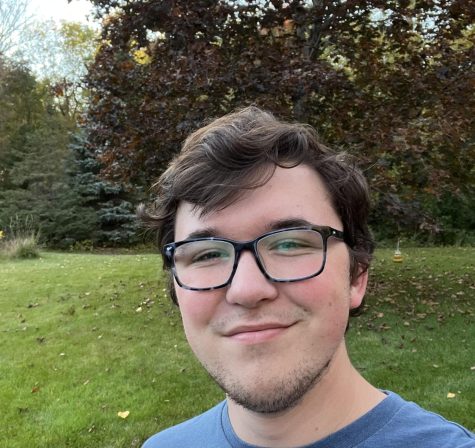
Hi! I'm Michael Fredericks I am a junior this year and one of Poney Express's Graphics and Online editors. I participate in the arts here at the High School...



